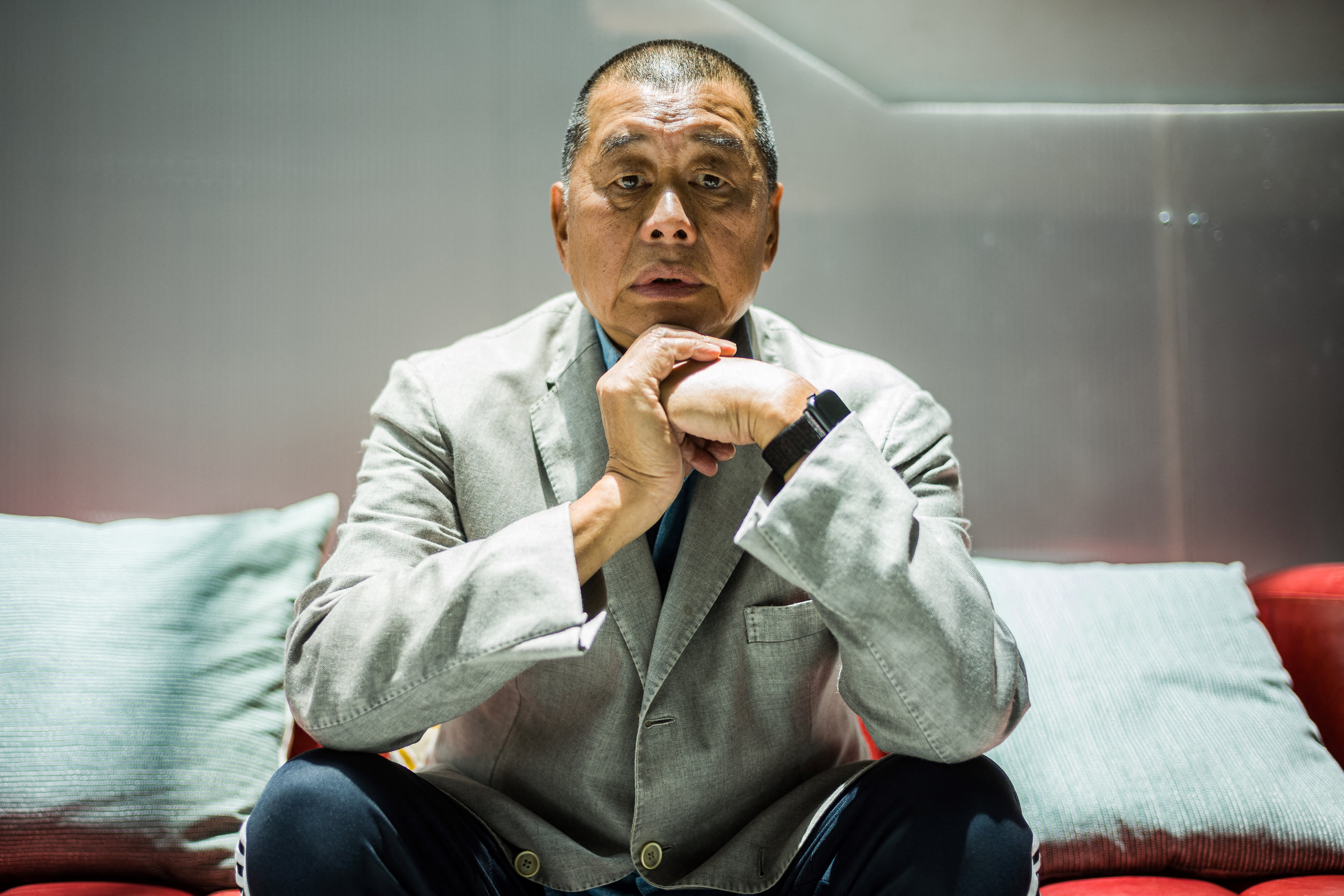Support truly
independent journalism
Our mission is to deliver unbiased, fact-based reporting that holds power to account and exposes the truth.
Whether $5 or $50, every contribution counts.
Support us to deliver journalism without an agenda.

The son of media mogul Jimmy Lai has called on all foreign judges to leave Hong Kong’s judicial system, which he claimed pressures them to go along with Beijing’s clampdown on “pro-democracy protesters”.
Sebastien Lai has been advocating for the release of his 76-year-old father, who has been accused of colluding with foreign forces under the Beijing-imposed national security law.
If found guilty, the founder of the now defunct pro-democracy newspaper Apple Daily, is facing possible life in prison.
His case has sparked an international outcry and is widely seen as a test of Hong Kong’s judicial independence. The trial, conducted by three judges designated under the national security law, began on 18 December, three years after Lai was arrested, and has been slower than expected.
Hong Kong has imprisoned more than 1,800 people “for their pro-democracy protesting”, Mr Lai said at the press club in Canberra, Australia, while rallying support for his father on the 27th anniversary of the former British colony’s handover to China.
Critics have claimed Hong Kong’s rule of law has been undermined by the security laws and the presence of foreign judges risks lending an air of legitimacy to them.
China has allowed non-permanent foreign judges to sit on Hong Kong’s Court of Final Appeal, even after taking it back in 1997, to enable continuity with British common law tradition, provide expertise to local lawyers and reassure businesses and financial markets.

Nearly half of foreign judges in Hong Kong have stepped down since China enacted the national security law in the wake of the 2019 protests in the city.
Four Australian judges are among seven overseas ones who remain.
Mr Lai said the judges who left Hong Kong were “voting with their feet”.
“By staying, you’re essentially saying there’s still some semblance of rule of law in this place that imprisons pro-democracy protesters,” Mr Lai said. “And that is not true, that is not true at all.”
He called on Australia’s government to join an international campaign to put pressure on Beijing to free his father.
A British judge who resigned from Hong Kong’s Court of Final Appeal in June said the city was “slowly becoming totalitarian”.
“Hong Kong, once a vibrant and politically diverse community, is slowly becoming a totalitarian state,” Jonathan Sumption wrote in the Financial Times.
“The rule of law is profoundly compromised in any area about which the government feels strongly.”
He had stayed on in the hope the presence of foreign judges would help sustain the rule of law, Mr Sumption said, but “I fear that this is no longer realistic”.
Mr Lai and his lawyers met Australian foreign minister Penny Wong on Monday.
“Australia is deeply concerned about Hong Kong’s widespread application of national security laws to repress civil society and prosecute journalists like Mr Jimmy Lai,” Ms Wong said in a social media post.
Australia is deeply concerned by Hong Kong’s widespread application of national security laws to repress civil society and prosecute journalists like Mr Jimmy Lai.
Today I met Mr Lai’s family and lawyers to discuss Australia’s advocacy for democracy supporters in Hong Kong. pic.twitter.com/pEvAk6lPxt
— Senator Penny Wong (@SenatorWong) July 1, 2024
“The prosecution of Mr Lai, as a publisher, has had a chilling effect on free speech in Hong Kong,” she added.
“Consistent with UN Human Rights Committee recommendations, Australia calls on China to cease suppression of media freedoms and repeal the national security law.”
Jimmy Lai’s trial has been condemned by both the UK and the US as an “attempt to stop the peaceful exercise of his rights to freedom of expression and association”.

